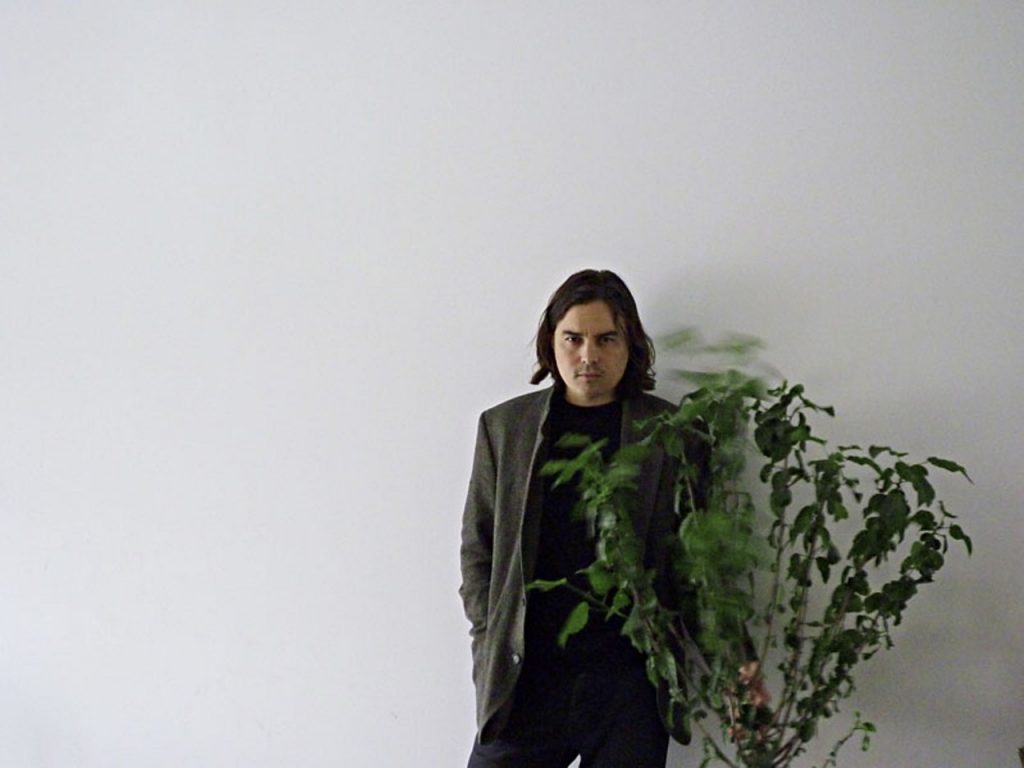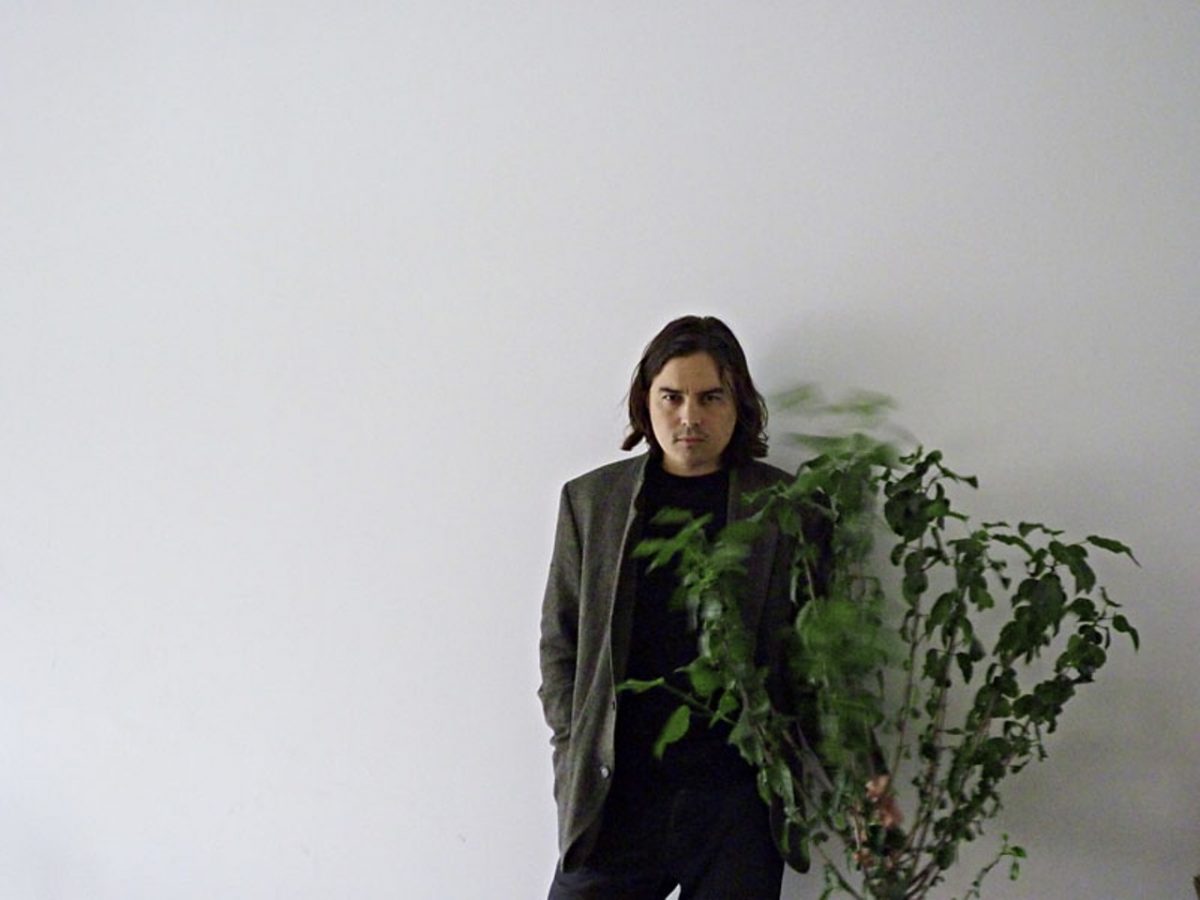
Spencer Krug frees himself to make new artistic choices with his ever-changing project, Moonface.
If Spencer Krug is known for anything, it’s his activity. Since 2005, not a year has passed without at least one new album from at least one of his many bands.
Krug entered the collective consciousness first as a sideman in Carey Mercer’s Frog Eyes (Krug left after that band’s debut, 2002’s The Bloody Hand), then as a founding member of Wolf Parade.
When Wolf Parade’s Isaac Brock-produced debut, Apologies To The Queen Mary, arrived in 2005 via Sub Pop, it was one in a pack of emerging Canadian indie bands with a knack for bending bombastic rock into new shapes. But Queen Mary offered a glimpse at the sort of busy arrangements and impressionistic lyrics Krug would continue to explore in other projects. It also introduced Krug’s dramatically enunciated singing style; 2005 also saw the debuts of instrumental trio Fifths of Seven and then-solo project Sunset Rubdown. Fifths of Seven, formed with cellist Beckie Foon and mandolinist Rachel Levine, released its sole album, Spry From Bitter Anise Folds, while Sunset Rubdown expanded into a steady lineup and built an acclaimed career of its own. In 2006, Krug joined Frog Eyes’ Carey Mercer and Destroyer’s Dan Bejar to form Swan Lake, a studio-only project with two releases under its belt.
But those days are gone. Now, Krug writes via email, there is only Moonface. “Any of the proper bands that I was working with over the last seven or eight years have stopped for now.” Wolf Parade, Swan Lake, Sunset Rubdown: They’ve run their course. “Maybe that’s a bad sign,” he says. “Maybe I wreck things. Actually, for sure I wreck things, but only maybe do I wreck bands.”
With the benefit of some hindsight, though, it’s not particularly surprising that Krug, for whom one band was never enough, would find the limitations of a well-defined entity confining. Moonface is deliberately fluid. It can take on any sound, or include any collaborators Krug sees fit.
“What I don’t want is for any specific sound or style to be expected of Moonface, and to be able to explore whatever instruments or styles I happen to be into, and, hopefully, allowing others to hear it with a more open mind, and not the burden of comparing it to whatever came before,” he says. “I don’t think this is entirely possible, but like I said, that’s what I’m hoping for.”
Moonface debuted, officially, in January of 2010 with Dreamland EP: Marimba And Shit-Drums. A limited Sunset Rubdown seven-inch, 2009’s Introducing Moonface, proved to be the project’s origins, though. The 7-inch contained only two simple recordings, but for Krug, it was a reminder of the benefits of working alone.
For Dreamland, which was reportedly inspired by a dream journal, Krug set the template for what Moonface would become—at least for the foreseeable future. With a given set of parameters, Krug—a pianist for two decades—forces himself to work outside of his typical comfort zone, while satisfying a curiosity for how specific timbres change the way music is received. On Dreamland’s single 20-minute track, Krug harnesses the warm resonance of the marimba, layering melodies and crafting a softly shifting psychedelic landscape that makes its sprawl feel much shorter.
He’d planned to follow that album with a similar one. “At first, this record was going to be another percussion album,” he wrote in a sort-of artist’s statement distributed by his record label, Jagjaguwar. “But it wasn’t happening.” Instead of the vibraphone he’d hoped for, Krug turned his attention to organ, specifically “an old double-manual organ—the kind from the ’80s that you find in your grandmother’s basement.”
The product of Krug’s sudden urge, the obviously titled Organ Music, Not Vibraphone Like I’d Hoped, could hardly be more different from its predecessor. Instead of one 20-minute piece, Organ Music offers five, ranging from six-and-a-half minutes to just past eight. Krug finds his voice here in densely layered melodies, not allowing notes to resonate in open space the way they do on Dreamland. Here he balances the cool, mechanical plod of early new wave with the melodic flourishes of progressive rock, without sacrificing the idiosyncratic songwriting style that introduced Krug to the indie rock world in the first place.
But he’s assertive that, though upcoming live performances will focus on material from Organ Music, it isn’t meant as a precedent. Moonface isn’t just another solo project. “I am not ‘striking out on my own,’” he says. “Those words are too confident and powerful to describe where I’m at musically right now. It’s more like I’ve started down a big curvy water slide that I’ve never been on before, and I just realized there’s a huge rip in the ass of my shorts that I hope no one sees when I get to the bottom.” Moonface, he says, should be as much about collaboration as it is about solo work.
His next recording will be with the Finnish space-rock band Siinai. They’ll be writing the music, while Krug will provide his voice and lyrics. Again, Krug is seeking a new approach by creating new parameters for himself. By limiting his options on a per-album basis, he’s creating new ones overall.
“To say a project or a band is limited in what it can do, just because the material is made within set parameters or a predetermined process, is to confuse the art with the artist,” Krug says. “The artist is still free go cut off his or her own ear whenever the urge strikes.”
—Bryan C. Reed







